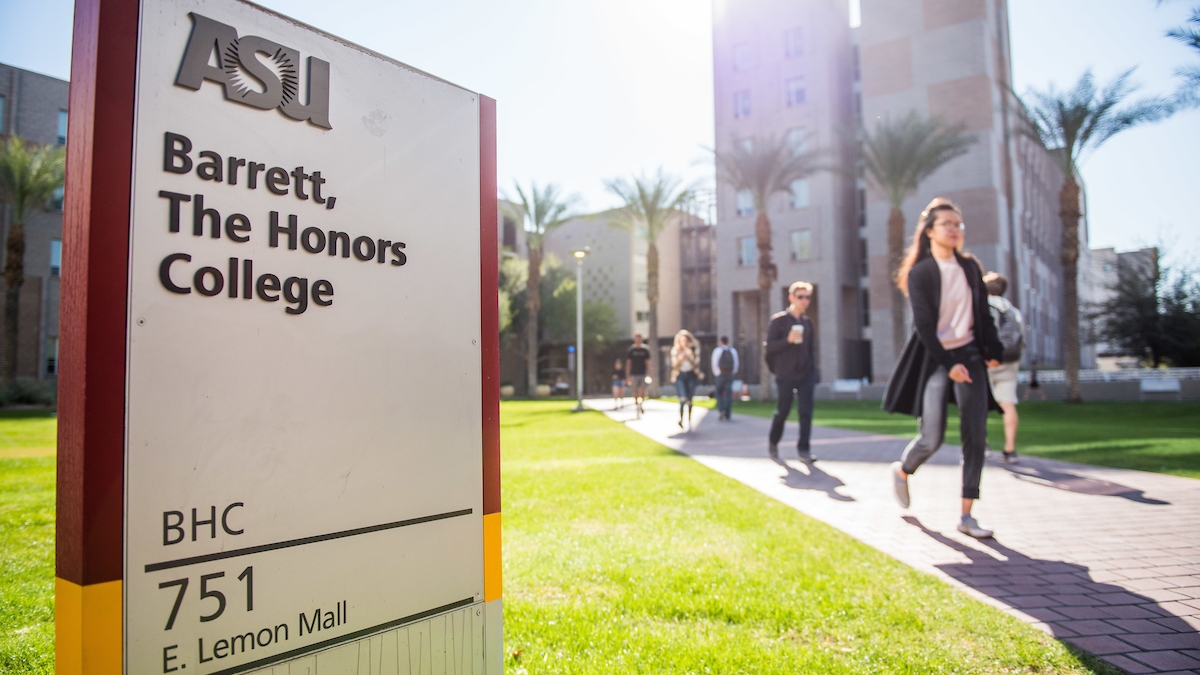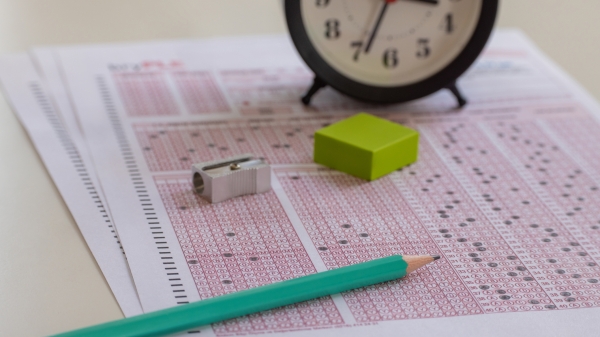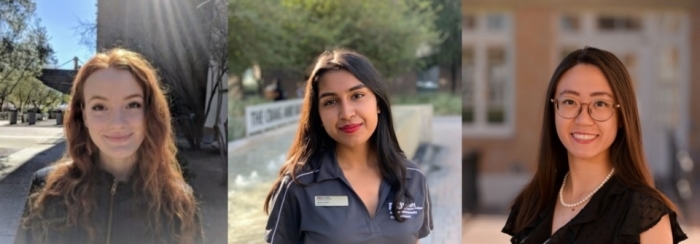Scholarship supports the Theory of Embedded Intelligence in students' honors theses

ASU photo
Electronic engineer Bill Mensch — founder, chairman and chief executive officer of Western Design Center in Mesa, Arizona, a major contributor to the design of the Motorola 6800 8-bit microprocessor and who was part of the team that created the MOS Technology 6502 — believes in the Theory of Embedded Intelligence and the great potential of students in Barrett, The Honors College at Arizona State University to put it into practice.
He characterizes embedded intelligence as the ability to sense, process what has been sensed, communicate internally and externally, and actuate that which is beneficial for survival of entities and individuals.
That’s why in 2020 he and his wife Dianne, through their Bill and Dianne Mensch Foundation, established the Mensch Prize, a scholarship for honors students whose theses embody the theory, described by the foundation as a way of understanding the world that empowers people to use knowledge and connect their learnings to new ideas and innovations.
“Barrett students probably are the most engaged in their chosen curriculum and the most interested in their personal development. They plan to succeed in life. So, aligning the Mensch Prize with Barrett Honors College is a natural outcome that focuses on expanding the embedded intelligence of the students,” Mensch said.
Applications are now open for the 2024 Mensch Prize, which provides six $1,000 awards to Barrett students who complete their thesis on a topic that embodies the Theory of Embedded Intelligence in the areas of engineering and applied science; social sciences; humanities; physical sciences; biological sciences; or fine and performing arts.
Honors theses, which produce new knowledge in many different disciplines, are products of the students’ and the university’s embedded intelligence, Mensch said.
“We are looking for the students most involved in their education — the best and the brightest — and those who have taken the time and made the effort to know the Theory of Embedded Intelligence. We are looking for students who want to excel,” Mensch said.
The 2023 Mensch Prize recipients included:
- Anika Islam, who received a bachelor’s degree in business health care in 2023. She was awarded the Mensch Prize for Social Sciences for her thesis titled “The Effect of Priming Social Curiosity on Children’s Prosocial Behavior."
- Ashley Tse, who received a bachelor’s degree in biomedical engineering last May and who is now a 4+1 accelerated master's student in biomedical engineering at ASU. She received the Mensch Prize for Engineering and Applied Sciences for her thesis titled “Engineering of Light-Based Promoters with PACE and Continuous Culture Hardware."
- Liam Andersen, who completed his bachelor’s degree in medical studies in 2023. He received the Mensch Prize for Physical Sciences for his thesis titled “Quantum Physics and the Double-Slit Experiment."
- Sydney Tran, who received a bachelor’s degree in psychology last May. She was given the Mensch Prize for Fine and Performing Arts for her thesis “Beyond Realms: An Analog Game."
- Elizabeth Rapacz, who graduated in May 2023 with a bachelor’s degree in biochemistry (medicinal chemistry). She received the Mensch Prize for Biological Sciences for her thesis titled “Structural Study of Regulated Intramembrane Proteolysis of the p75NTR by γ-secretase."
- Erin Burgard, a senior majoring in environmental engineering, who received the Mensch Prize for Engineering and Applied Sciences for her thesis titled “A New Method for Measuring Thin Film Stress Under Operational Conditions to Understand Perovskite Solar Cell Degradation."
Burgard, whose research focuses on methods to reduce thermal degradation of solar cells made of perovskite, a material that has shown potential for high performance and low production costs in solar cells, said the Mensch Prize supports her goal to make a more sustainable world.
“When perovskite solar cells become stable enough to be a marketable product, I foresee solar energy being more ethical, accessible and economical," she said. "It is an honor to work on this initiative, and this scholarship has enabled me to more fully apply myself to this research that I enjoy."
Burgard believes the Theory of Embedded Intelligence can be related to almost any project, making varied student theses eligible for the Mensch Prize.
What advice do Burgard and other Mensch Prize winners have for students who may be interested in applying for the award?
“Think creatively about how you could incorporate EI into your work if you don't already actively work with EI. Get writing assistance for your application from your mentors. Above all, put your best intentions forward and apply by the deadline,” Burgard said.
Islam said the Mensch Prize provides a great opportunity for students to view their theses in a unique light.
“I recommend connecting how each part of the Theory of Embedded Intelligence individually applies to the work you are doing on your thesis first. Then consider how your work can be applied to everyday circumstances,” she said.
Tse said students should read about the Mensch Foundation and embedded intelligence and apply this thinking to their thesis work.
“Seek to understand the theory and connect your learnings to have a beneficial impact on society and humanity, ultimately,” she said.
The deadline to apply is Jan. 12, 2024. Student applications will be considered based on innovation and the potential for beneficial impact to humanity.
Find out more about the Mensch Prize here. Barrett students can apply for the Mensch Prize here.
Barrett Honors College student Rebecca Smalley contributed to this story
More Sun Devil community

Tested tips for taking exams
With May quickly approaching, many students are starting to prep for their most important tests of the year — final exams.Toni Miceli, the inaugural director of the bar exam success program at…

School of Transborder Studies celebrates 15th anniversary
During the summer before his freshman year at Arizona State University, Salvador Macias participated in the AGUILA Youth Leadership Institute, a college access organization designed to help young…

Barrett program unlocks study abroad for first-year honors students
Twenty first-year students from Barrett, The Honors College at Arizona State University are spending their second semester studying abroad in Rome, Italy.Traveling in a tight-knit honors community…


